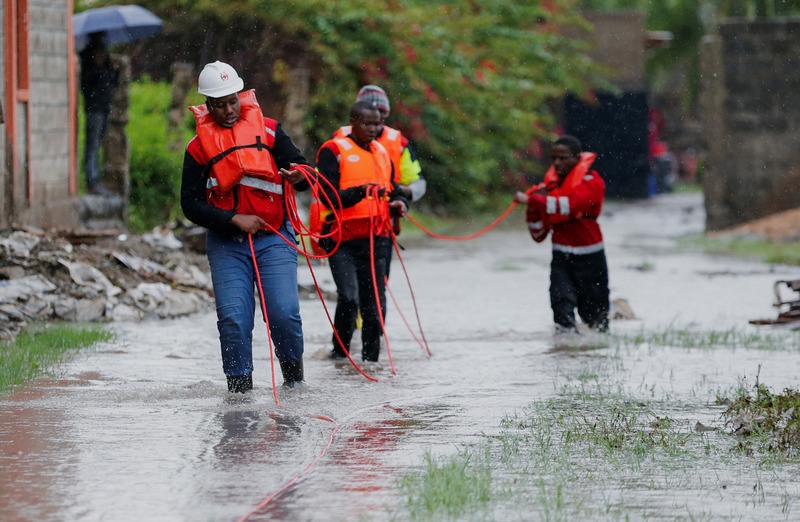Above-normal rainfall expected in several African countries for four months -IGAD

The temperature forecast also suggests a probability of warmer-than-normal conditions throughout the region.
The IGAD Climate Prediction and Applications Centre (ICPAC) has announced that Kenya, along with other countries in the Greater Horn of Africa (GHA), is likely to experience above-normal rainfall and higher-than-usual temperatures from June to September 2024.
In a statement released on Tuesday, ICPAC indicated an increased likelihood of above-normal rainfall in most parts of the GHA. This includes Djibouti, Eritrea, central and northern Ethiopia, western and coastal Kenya, much of Uganda, South Sudan, and Sudan.
More To Read
- Renewables overtake coal in global electricity generation
- AU, IGAD lead Africa in mourning former Prime Minister Raila Odinga
- Why are over 670 million people going hungry?
- Yemen, Somalia hold security talks in Aden to strengthen bilateral cooperation
- Bold, diverse and unstoppable: Girls speak out amid a world in crisis
- Africa’s ‘great green wall’ is stalling: In Senegal very few planted areas show progress
However, northern Somalia, certain areas in western Ethiopia, and north-western South Sudan are expected to face drier-than-normal conditions.
"The climate patterns in the JJAS 2024 period closely resemble those of 1998 and 2010, both of which experienced wetter-than-normal conditions over much of the region," reads the statement.
Additionally, an early to normal onset of the rainy season is anticipated in several areas, including central and northern Ethiopia, Eritrea, Sudan, and South Sudan.
Furthermore, a delayed onset of the rainy season is predicted for Djibouti, parts of eastern and western Ethiopia, central and western Sudan, and southern South Sudan.
The temperature forecast also suggests a probability of warmer-than-normal conditions throughout the region, particularly affecting northern Sudan, central and western Ethiopia, Somalia, Kenya, Rwanda, Burundi, and Tanzania.
ICPAC’s Director Guleid Artan, emphasised the region's high vulnerability to the adverse effects of climate change, which significantly challenge community resilience.
"The forecasted wetter-than-normal conditions for June to September 2024 echo the patterns of 1998 and 2010, highlighting the level of impact especially for South Sudan and Sudan, which may experience impacts of floods," he said.
He reiterated the critical role of early warning systems which help in managing extreme climate events.
“As we observe these recurring extreme climate events, it is important to acknowledge the pivotal role played by early warning systems which serve as key instruments of preparedness, guiding us through climate variability. Through our operations, ICPAC continues to provide actionable climate information that is relevant and key for Early Action,” Artan added.
ICPAC also said it has adopted an objective seasonal forecast method aligned with the World Meteorological Organisation's guidelines to generate climate forecasts for the Greater Horn of Africa.
Top Stories Today














































